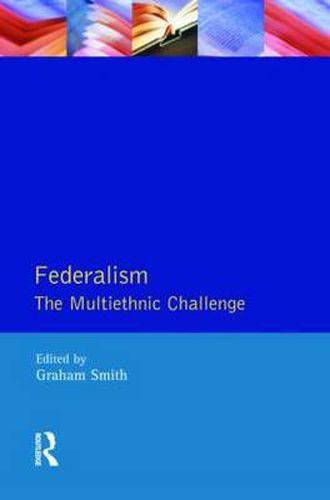Readings Newsletter
Become a Readings Member to make your shopping experience even easier.
Sign in or sign up for free!
You’re not far away from qualifying for FREE standard shipping within Australia
You’ve qualified for FREE standard shipping within Australia
The cart is loading…






This text aims to examine both those federal formations where cultural differences - based upon race, ethnicity, tribe, language or religion - provide their architectural focus as well as the utility and appropriateness of federalism to managing differences in deeply divided societies. A scene-setting chapter introduces the reader to the central questions concerning federalism and cultural difference by focusing on the relationship between federation and questions of ideology, political practice and social justice. The rest of the book falls into three parts. In Part one the contributors consider those ethno-federations whose very legitmacy is under question from particular ethno-regional communities. Here the underlying reasons for federal crisis are examined and the ability of federation as a strategy of conflict management is explored. Part two focuses on the break up of socialist federations and the search in both post-socialist Russia and Bosnia to find a federal solution to their multi-ethnicity. In Part three consideration is given to multiethnic polities where federation is being actively considered as a way of managing multiethnic divisions along more democratic lines. A postscript has also been added, signalling in particular how comparative analysis can enrich our understanding of the idea and practice of federations.
$9.00 standard shipping within Australia
FREE standard shipping within Australia for orders over $100.00
Express & International shipping calculated at checkout
Stock availability can be subject to change without notice. We recommend calling the shop or contacting our online team to check availability of low stock items. Please see our Shopping Online page for more details.
This text aims to examine both those federal formations where cultural differences - based upon race, ethnicity, tribe, language or religion - provide their architectural focus as well as the utility and appropriateness of federalism to managing differences in deeply divided societies. A scene-setting chapter introduces the reader to the central questions concerning federalism and cultural difference by focusing on the relationship between federation and questions of ideology, political practice and social justice. The rest of the book falls into three parts. In Part one the contributors consider those ethno-federations whose very legitmacy is under question from particular ethno-regional communities. Here the underlying reasons for federal crisis are examined and the ability of federation as a strategy of conflict management is explored. Part two focuses on the break up of socialist federations and the search in both post-socialist Russia and Bosnia to find a federal solution to their multi-ethnicity. In Part three consideration is given to multiethnic polities where federation is being actively considered as a way of managing multiethnic divisions along more democratic lines. A postscript has also been added, signalling in particular how comparative analysis can enrich our understanding of the idea and practice of federations.